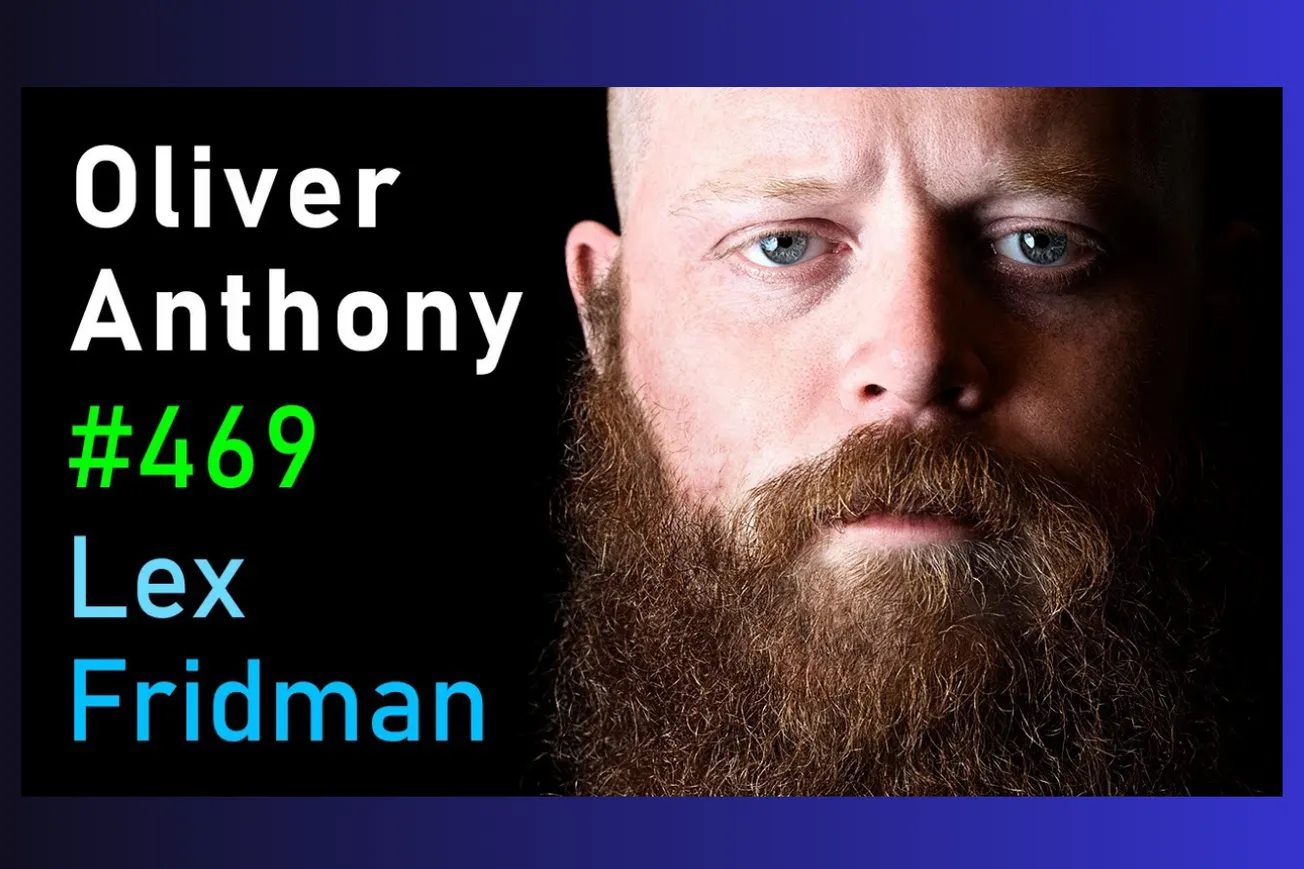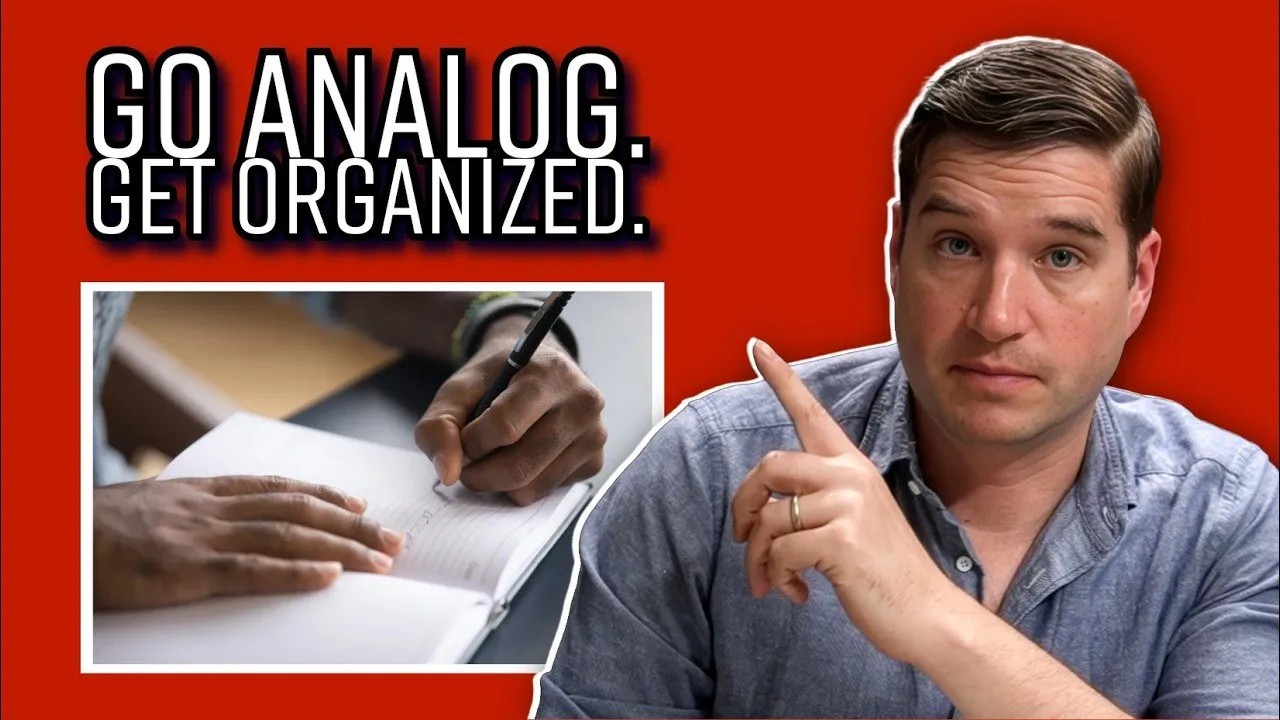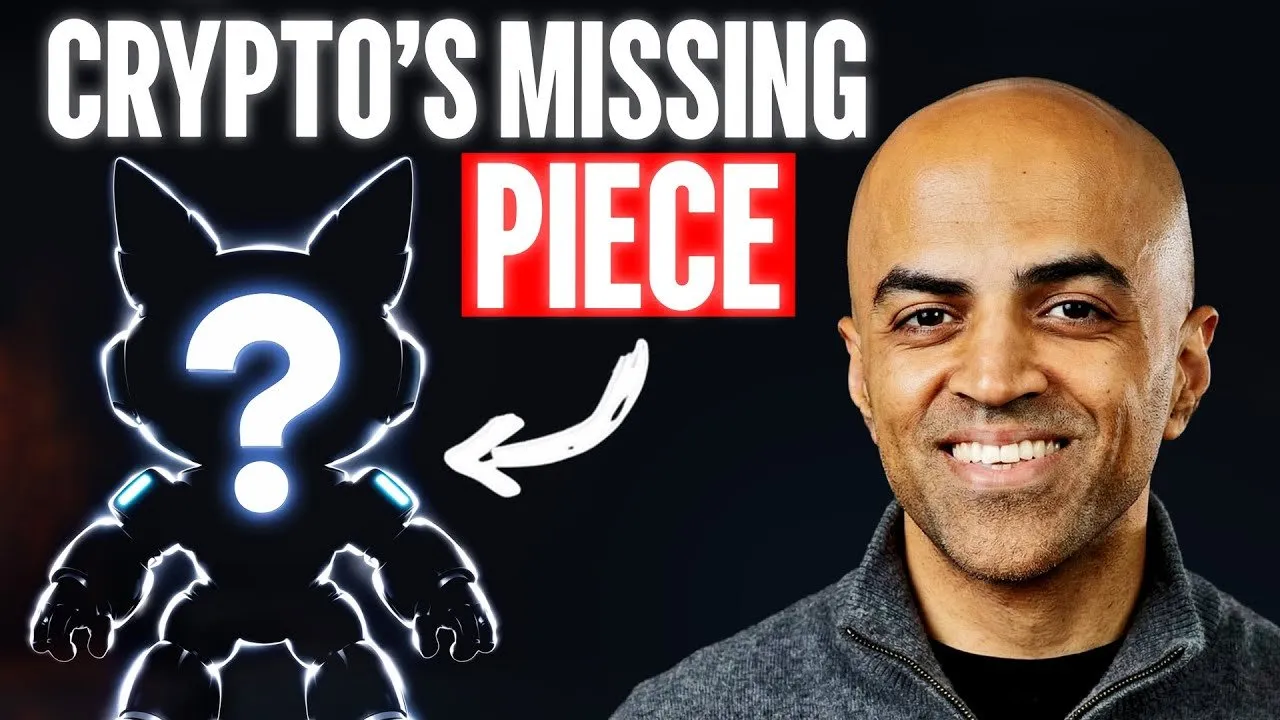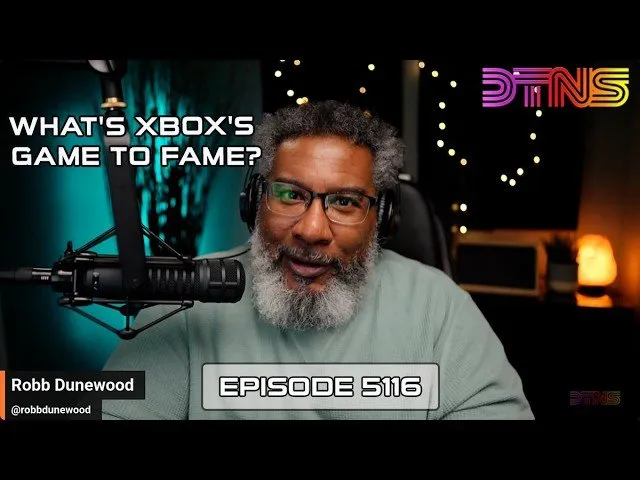Table of Contents
The "Rich Men North of Richmond" singer reveals why he rejected massive record deals and chose to build something entirely different for working-class Americans.
Key Takeaways
- Oliver Anthony turned down $8 million record deals because he felt it would betray the working-class people who made his music successful
- His years talking to blue-collar workers on job sites gave him insights into struggles that mainstream media completely misses
- The songwriting process happens spontaneously - songs come like dreams that disappear if not captured immediately
- Corporate structures are destroying creativity in music just like they're killing innovation in companies like Boeing
- Most celebrities are "pretty boring and airheaded" compared to the fascinating stories of everyday working people
- Technology is creating digital escapism while real-world communities and skills are disappearing
- Depression often builds gradually through neglecting responsibilities until the mountain feels impossible to climb
- Nature and genuine human connection are essential antidotes to the corporate dehumanization of modern life
- Building alternative venues and systems outside corporate control is more important than reforming existing institutions
The Authenticity That Corporate America Can't Manufacture
There's something about Oliver Anthony that the music industry just doesn't get. Maybe it's the way he recorded "Rich Men North of Richmond" on his phone in a carport, with cicadas buzzing in the background. Or maybe it's how he describes bombing at open mics in smoke-filled bars, walking off stage mid-song when nerves got the better of him.
What's clear is that his authenticity isn't something you can polish in a Nashville studio. When record executives offered him eight-figure deals, complete with tour buses and stadium shows, he saw it for what it really was - a machine designed to strip away everything that made his music resonate with millions of people in the first place.
"I felt like if I was gonna do anything like that, that I'd be betraying those people somehow," he explained. The "those people" he's talking about aren't abstract demographics or market segments. They're the underwater welders, the factory workers, the folks struggling to pay bills while watching politicians play games with their lives.
This wasn't some calculated business decision. Anthony had spent eight years building relationships with blue-collar workers in industrial settings, sometimes talking to twenty different people a day on job sites. He wasn't there with news cameras or conducting interviews - he was just another guy trying to make a living. In that environment, you hear what's really going on behind the scenes of the structure that keeps America running.
The stories he collected weren't pretty. Messages flooded in after his song went viral, describing suicide, addiction, unemployment, anxiety, depression, and hopelessness. These weren't just statistics - they were personal accounts from people who felt completely abandoned by the systems supposedly designed to help them.
When you understand that background, walking away from millions starts to make sense. How do you take money from the same corporate machine that's crushing the people who made your success possible? It's like accepting payment to forget everything you've learned about what's really happening in America.
Corporate Dysfunction Is Destroying Everything We Touch
Here's where Anthony's perspective gets really interesting. He didn't just observe corporate dysfunction in the music industry - he lived through it in regular jobs for years. The same bureaucratic nonsense that turns creative artists into manufactured products is strangling innovation everywhere else too.
Think about Boeing, which Anthony's documentary filmmaker worked with before. You've got brilliant engineers who know exactly how to build safe, efficient aircraft. But they can't get anything done because Bob from one department has to schedule a meeting with John from another department and Debbie from a third department. By the time they have their meeting two and a half weeks later, the original problem has gotten worse and created three new problems.
Meanwhile, the engineers who actually know how to fix things lose motivation because they're constantly hitting walls of paperwork and bureaucracy. The people at the top implementing all this dysfunction suffer, and the people at the bottom suffer even more. Nobody wins except the bureaucracy itself, which grows stronger by consuming everyone's time and energy.
This is exactly what happens in the music industry. You've got talented artists with authentic stories to tell, but they get filtered through A&R executives, marketing committees, and focus groups until what comes out sounds like every other polished product on the radio. The corporate speak takes over - suddenly everyone's worried about "demographics" and "market positioning" instead of whether the music actually means something to real people.
Anthony saw this firsthand when industry people gave him blank stares for turning down massive offers. They couldn't understand someone who didn't want six tour buses, fifteen tractor trailers, and a private jet. To them, success is measured in scale and revenue streams. The idea that bigger might actually be worse just doesn't compute in their system.
What they missed is that Anthony's power came from being "just some idiot with his guitar." The moment you surround that with professional production and corporate messaging, you've destroyed the very thing that made it special. It's like taking a three-legged cat that survived getting run over and putting it in a fancy pet store - you've missed the entire point of what made the story meaningful.
The Stories Corporate Media Never Tells
One of the most frustrating things about modern media coverage is how completely it ignores the people who actually build and maintain our society. Anthony spent years talking to the folks who literally keep the lights on, the water flowing, and the buildings standing. Their stories make most celebrity gossip look like mindless drivel.
Take his friend Jocko - not the famous Navy SEAL, but an underwater welder who works 70-80 hours every week. This guy gets on heights that would terrify most people and goes into underwater environments that would give you nightmares. He's currently working on the Chesapeake Bay tunnel job, which requires skills and courage that maybe one in ten thousand people possess.
But nobody knows his story. Nobody interviews underwater welders about what they've seen or what they think about the state of the country. Instead, we get endless coverage of celebrities whose main qualification for attention is being pretty and saying the right things on social media.
The factory Anthony worked at in North Carolina employed mostly people with criminal backgrounds or high school dropouts who couldn't find work elsewhere. These weren't bad people - they were just folks who'd made mistakes or hadn't gotten the same opportunities as others. One woman named Denise had gotten in trouble for manufacturing methamphetamine with her husband, but she was a sweet person who did her job well and looked out for her coworkers.
These are the people who actually understand what life is like for most Americans. They know what it's like to choose between paying for medicine or paying rent. They understand the stress of having a family member who needs expensive medical care while you're working a job that barely covers basic expenses. They've lived through the kind of uncertainty that makes you question whether the American Dream is just a cruel joke.
But their voices are completely absent from most discussions about policy or culture. Politicians talk about "working families" while having no idea what working families actually experience. Media outlets focus on political horse races while ignoring the economic realities that drive people's actual voting decisions.
Anthony's music worked because it came from someone who'd actually lived in that world, not someone who'd read about it in policy papers or heard about it in focus groups.
The Spontaneous Magic of Real Songwriting
The way Anthony writes songs is completely different from the Nashville factory approach. Instead of sitting down with co-writers to "plug away" at creating content, his best work comes when he's not trying to write at all. Songs arrive like dreams - perfectly formed for a brief moment, then gone forever if not captured immediately.
"I've gotta get sober" came together over months of recording himself on his phone, working through the emotions in real time. You can hear the pain in those early videos, but also the hope that comes from deciding to change your life. It's not polished or professional - it's just honest in a way that cuts straight through all the bullshit.
The original snippet of "Rich Men North of Richmond" sat on his phone for months before he finished it. Just a fragment about selling his soul and wasting his life away, born from frustration with terrible working conditions and dealing with contractors who treated people like disposable equipment. The final version expanded on that core feeling, but the heart of it was always that moment of recognition - this is what it feels like to be ground down by systems that don't care about you as a human being.
This process can't be replicated in corporate writing rooms because it requires genuine emotional vulnerability. You can't schedule inspiration or manufacture authenticity through market research. The best you can do is create conditions where real emotions can emerge, then capture them honestly without trying to improve or polish them.
That's why Anthony's recordings still use the audio directly from his phone videos. Adding professional production would miss the point entirely. The cicadas and background noise aren't flaws to be fixed - they're part of what makes the music feel real and immediate.
Most industry professionals probably hear those recordings and immediately start thinking about how to "improve" them. Better audio quality, more consistent timing, maybe some instrumentation to fill out the sound. But every "improvement" would actually move the music further away from what made it powerful in the first place.
Technology's Double-Edged Promise
Anthony isn't anti-technology, but he's deeply concerned about how we're using it. The same tools that allowed him to record and distribute music independently are also creating unprecedented levels of isolation and addiction. We're in a unique moment where information is more accessible than ever, but real human connection is becoming increasingly rare.
The problem isn't the technology itself - it's how it's being designed to maximize engagement rather than genuine human flourishing. Social media algorithms are incredibly sophisticated at giving us exactly what we want in the moment, but what we want in the moment often isn't what's good for us long-term.
You can see this playing out across society. Cities that were once beautiful and thriving are falling apart while digital entertainment becomes more immersive and addictive. Real-world skills like farming, welding, and building things with your hands are disappearing while we get better at consuming content on screens.
This creates a dangerous feedback loop. As the real world becomes more dysfunctional and depressing, people naturally retreat into digital spaces that feel more rewarding and controllable. But the more we retreat, the less invested we become in fixing real-world problems, which makes them worse and drives even more escapism.
Anthony experienced this himself during his darkest periods. Instead of facing mounting responsibilities and problems, it was easier to drink and scroll through videos for hours. The digital world offered immediate gratification while the real world demanded difficult work with uncertain outcomes.
Breaking out of that cycle required reconnecting with physical reality - buying land, raising animals, growing food, and building things with his hands. There's something about working with soil and animals that restores your sense of what actually matters. You can't bullshit a garden or manipulate a pig with clever marketing.
The solution isn't to reject technology entirely, but to use it in service of real human goals rather than letting it use us for its own algorithmic purposes. Technology should help us connect with other people and build things in the physical world, not replace those activities with digital substitutes.
Depression's Gradual Grip and the Path Back Out
Anthony's description of depression is one of the most honest and practical accounts you'll hear from someone who's lived through it. It's not usually dramatic or sudden - it's a gradual process of neglecting responsibilities and thinking negatively about yourself until you've dug a hole so deep that climbing out feels impossible.
The worst part is how it becomes self-reinforcing. You don't take care of basic things like hygiene and health, which makes you feel worse about yourself, which makes it even harder to take care of basic things. Eventually you've built this mountain of neglected responsibilities that seems insurmountable, and the easy way out starts looking more appealing than the hard work of rebuilding.
For men especially, this can be complicated by expectations about self-reliance and strength. You're supposed to handle your problems without complaining or asking for help. But when you can't handle them and you can't ask for help, the only option left feels like disappearing entirely.
What helped Anthony was finding something bigger than himself to believe in. Not necessarily traditional religion, though that worked for him, but some source of meaning and support that didn't depend on his own fluctuating self-worth. When you hate yourself, it's hard to do the work required to improve your life. But when you believe something greater cares about you despite your flaws, that provides motivation to keep trying even when you feel hopeless.
The practical side involved taking things one small step at a time. You can't solve everything at once, but you can make your bed. You can take a shower. You can pay one bill. Each small action builds momentum and proves to yourself that change is possible.
Nature played a huge role in his recovery. There's something about being surrounded by living systems that puts human problems in perspective. Soil bacteria fix nitrogen, plants grow toward light, animals find food and shelter - everything has its place in a larger pattern that works without constant human intervention. That can be profoundly reassuring when your own life feels chaotic and meaningless.
This is why Anthony's future plans focus so heavily on creating spaces where people can reconnect with natural systems and genuine community. Depression thrives in isolation, but it has trouble surviving in environments where people feel genuinely connected to something larger than themselves.
Building Parallel Systems Outside Corporate Control
The most ambitious part of Anthony's vision involves creating alternative infrastructure that operates independently of corporate monopolies. Instead of trying to reform existing systems, he wants to build new ones from the ground up.
For music, this means finding farm fields and main streets to host concerts instead of corporate venues. Ticket prices stay affordable, local communities benefit economically, and artists can connect directly with audiences without layers of corporate intermediaries. The venues become permanently available for other artists to use, creating lasting infrastructure rather than one-time events.
For food, it means connecting vacant farmland with people who know how to grow things, addressing "food insecurity" - the polite term for hunger - through direct action rather than bureaucratic programs. There's something absurd about living in a country where half the population is obese from eating processed garbage while the other half struggles to afford basic nutrition.
For mental health, it means creating healing centers where people can work with animals, grow food, and experience the kind of natural environments that humans evolved in. This isn't anti-medicine or anti-therapy, but recognition that some problems require more than clinical solutions.
The key insight is that we don't need permission from existing power structures to build alternatives. America was founded by people who got tired of asking permission from kings and decided to create something better. That same spirit is still available to anyone willing to take responsibility for improving their immediate environment.
This requires patience and humility. You can't fix everything at once, and you can't save everyone. But you can create small pockets of sanity and functionality that prove alternatives are possible. Over time, those examples can inspire and inform larger changes.
It also requires accepting that not everyone will understand or support what you're doing. Corporate systems have enormous resources and sophisticated marketing capabilities. They can make their failures look like successes and their competitors look naive or unrealistic.
But they can't manufacture the kind of authentic human connection that happens when people work together toward shared goals. They can't replicate the satisfaction of growing your own food or building something useful with your hands. And they definitely can't compete with the deep peace that comes from knowing you're living according to your actual values rather than someone else's profit motives.
That's the real threat that Oliver Anthony represents to existing power structures. Not his political opinions or his criticism of rich men north of Richmond, but his demonstration that ordinary people can create extraordinary things when they stop asking permission and start taking responsibility for their own communities.





